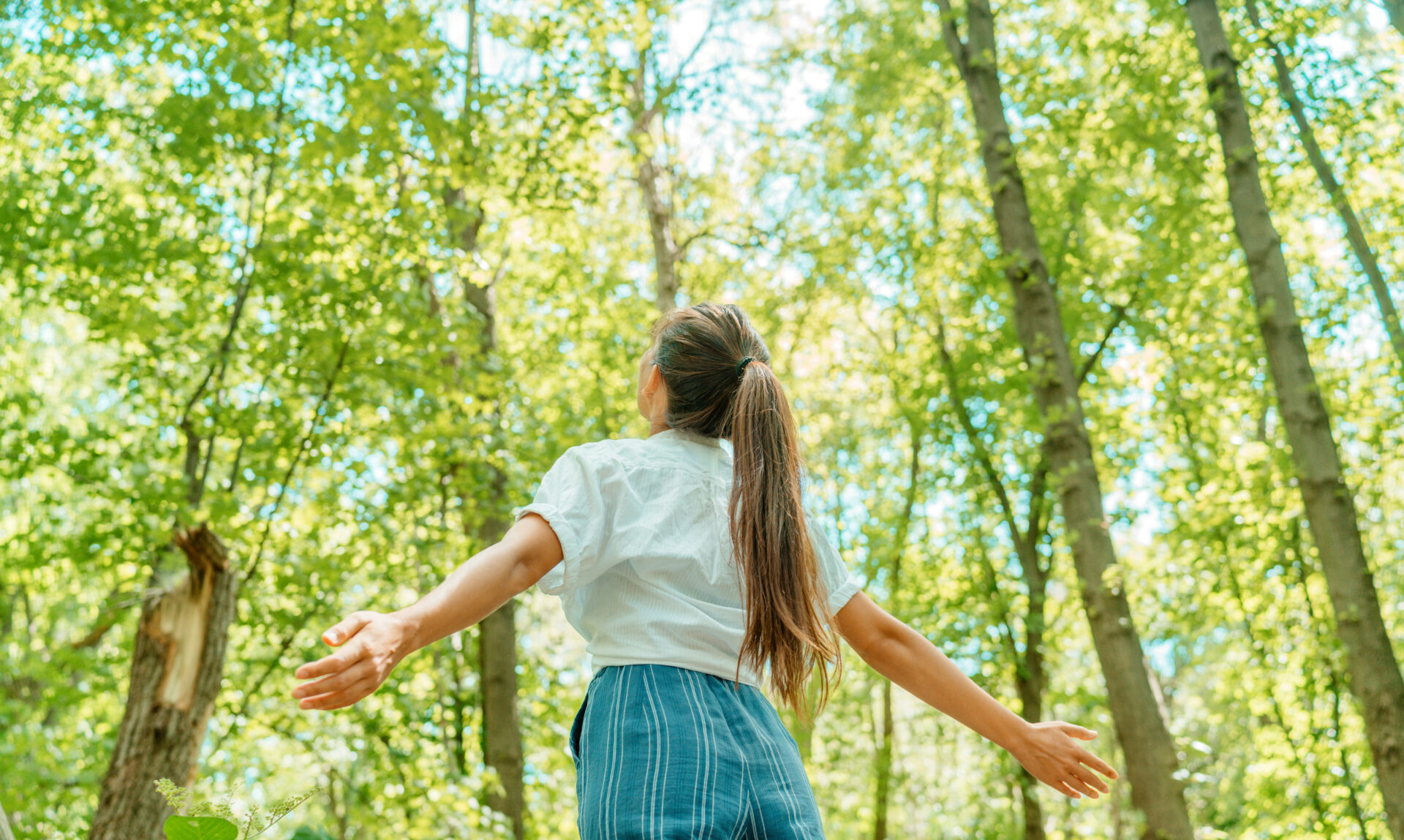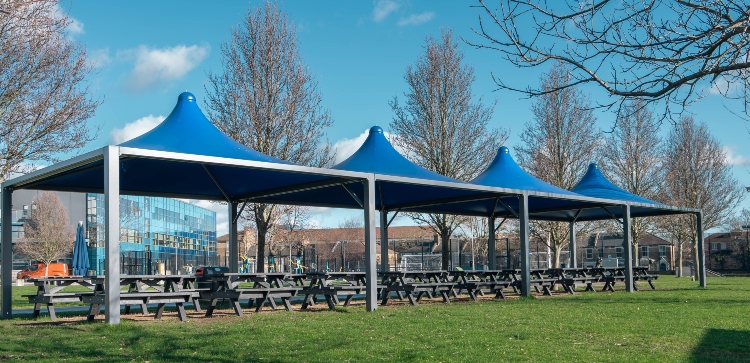There’s no denying that during lockdown, a lot of us relied on the outdoors to boost morale and improve our mental wellbeing. Being stuck indoors can have a severe impact on our mental health, increasing mental health issues such as anxiety and depression.
Here at A&S Landscape, we are passionate about providing people, whether that’s students, staff members, or members of the public, with practical and safe outdoor canopies.
Not only can our canopies, such as school canopies, protect and shelter from extreme weather conditions, but they can also improve students’ mental health by offering them a safe and fun learning environment.
Being outdoors and surrounded by nature is a simple solution that can boost mental health and well-being. Don’t believe us? These statistics should convince you.
The Amount of People Struggling With Mental Health Issues
1. 1 in 4 people will experience a mental health problem of some kind each year in England. (Source: Mind)
2. 1 in 6 people report experiencing a common mental health problem (like anxiety and depression) in any given week in England. (Source: Mind)
3. 1 in 5 people have suicidal thoughts (Source: Mind)
4. LGBTQIA+ people are between 2-3 times more likely than heterosexual people to report having a mental health problem in England. (Source: Mind)
5. 98% of people agree that mentally ill people experience stigma and discrimination. (Source: Priory Group)
6. 55% of workers say their employment has an adverse effect on their mental health. (Source: Priory Group)
7. In 2021, there were 5,583 suicides registered in England and Wales, equivalent to a rate of 10.7 deaths per 100,000 people. (Source: Office for National Statistics)
8. 61% of adults with mental health conditions don’t access treatment. (Source: Priory Group)
9. 300,000 people with mental health problems lose their jobs each year. (Source: Priory Group)
10. Approximately 280 million people in the world have depression. (Source: Priory Group)
The Impacts Nature has on Mental Health
1. A 2023 systematic review of 92 randomised controlled trials found significant reductions in depression and anxiety scores with nature-based interventions, as well as improvements in physical health measures such as lowered blood pressure. (Source: Royal College of Psychiatrists)
2. A 2021 report found that 70% of UK adults agreed being closer to nature improves their mood, and 49% said being close to nature helps them to cope with stress. (Source: Mental Health Foundation)
3. In research titled ‘How connecting with nature benefits our mental health’ it found that 44% of people said being close to nature makes them less anxious or worried. (Source: Mental Health Foundation)
4. 39% of people say that nature and wildlife are more important than ever to their wellbeing. (Source: GOV.UK)
5. 85% of adults agreed that being in nature makes us happy. (Source: Forest Holidays)
6. Research done in hospitals, offices, and schools found that even a plant in a room can have a significant impact on stress and anxiety. (Source: University of Minnesota)
7. People who spent two to three hours a week in nature were about 20% more likely to report high overall satisfaction. (Source: Nature Scientific Reports)
8. Studies suggest that it takes just 120 minutes a week outside to significantly boost health and wellbeing. (Source: Nature Scientific Reports)
9. Despite a decline in time spent in nature, 19.7 million people across the UK still gained health benefits from outdoor recreation in 2022. (Source: Office for National Statistics)
10. People who live in cities have a 20% higher risk of anxiety disorders, and a 40% more chance of mood disorders, compared to people in rural areas. (Source: Vitality)
The Amount of Time Spent Inside Vs Outside
1. It’s believed that for most people, they spend 90% of their day inside. (Source: Forest Holidays)
2. Between 2017 and 2022, people in the UK admitted to spending nearly 11 hours more inside each week. (Source: Forest Holidays)
3. 37% of British adults say they have no connection to wildlife in their everyday life. (Source: Forest Holidays)
4. 45% of adults in England reported spending more time outdoors than before the pandemic (March 2022). (Source: GOV.UK)
5. Three-quarters of UK children spend less time outdoors than prison inmates (Source: The Guardian, 2016)
6. 33% of UK adults reported visiting local green and natural spaces more often since coronavirus restrictions were put in place, and 40% of respondents said that this has been more beneficial to their wellbeing. (Source: GOV.UK)
7. People across the UK made 855 million fewer outdoor recreation visits in 2022 than they did in 2020. (Source: Office for National Statistics)
8. People in the UK are spending less time walking for exercise on average since March 2021. (Source: Office for National Statistics)
9. By March 2021, there was a 68% increase in normal levels of people planning to take trips to outdoor areas and outdoor attractions, and to take part in outdoor activities. (Source: Visit England)
10. A study of 1000 UK office workers found that almost 40% spend a maximum of just 15 minutes outside, excluding their commute to work. (Source: Ambius)
How to Improve Mental Health? Invest in an Outdoor Canopy!
An outdoor canopy is the perfect addition to any sector. A canopy encourages people to get outdoors and immerse themselves in nature, boosting their mood and helping them to feel more productive.
We’ve seen the impact that nature has on mental health, so we are determined to offer bespoke canopy solutions that will encourage individuals to make the most of their outdoor space.
Get in touch with our expert team today to discover your new canopy solution!




























































